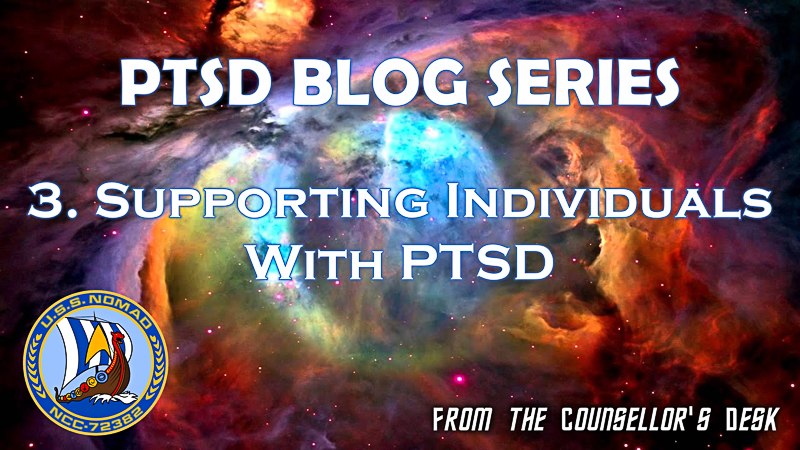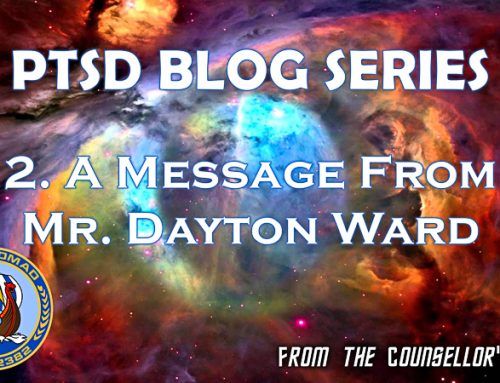Posttraumatic stress disorder (PTSD) is a psychiatric disorder that may occur in people who have experienced or witnessed a traumatic event such as a natural disaster, a serious accident, a terrorist act, war/combat, or rape or who have been threatened with death, sexual violence or serious injury. PTSD can occur in people of any ethnicity, nationality or culture, and at any age.
According to the Canadian Mental Health Association, an estimated 8% of Canadians will experience a traumatic event and develop PTSD. In the United States, the American Psychiatric Association reports that approximately 3.5 percent of U.S. adults are affected by PTSD every year and an estimated one in eleven people will be diagnosed with PTSD in their lifetime.
People with PTSD have intense, disturbing thoughts and feelings related to their experience that last long after the traumatic event has ended. They may relive the event through flashbacks or nightmares; they may feel sadness, fear or anger; and they may feel detached or estranged from other people. People with PTSD may avoid situations or people that remind them of the traumatic event, and they may have strong negative reactions to something as ordinary as a loud noise or an accidental touch.
Here are a few things we can do to support an individual with PTSD:
Provide social support
It can be very difficult for people with PTSD to talk about their traumatic experiences. For some, it can even make them feel worse. Instead, let them know you’re willing to listen when they want to talk, or just hang out when they don’t. Comfort for someone with PTSD comes from feeling engaged and accepted by you, not necessarily from talking.
Be a good listener
While you shouldn’t push a person with PTSD to talk if they do choose to share, try to listen without expectations or judgments. Make it clear that you’re interested and that you care – don’t worry about giving advice.
Rebuild trust and safety
Trauma alters the way a person sees the world. It also damages people’s ability to trust others and themselves. If there is any way you can rebuild a sense of security, this will contribute to the recovery.
Support treatment
While support and care are important, sometimes they are not enough. Many people who have been traumatized require professional PTSD therapy. However, broaching this sensitive subject can be difficult. Wait for the right time to raise your concerns. Frame your concerns in a positive, practical light – positing treatment as a way to learn and heal.
Resources:
- https://pubmed.ncbi.nlm.nih.gov/18801110/
- https://www.helpguide.org/articles/ptsd-trauma/helping-someone-with-ptsd.htm#
- https://www.psychiatry.org/patients-families/ptsd/what-is-ptsd
- https://pyramidfbh.com/what-are-the-stages-of-ptsd/
- https://homewoodhealth.com/corporate/blog/many-faces-of-ptsd
- https://www.helpguide.org/articles/ptsd-trauma/helping-someone-with-ptsd.htm?pdf=13688


![MEDICAL EMERGENCY ON MINOS KORVA [Part 1]](https://ussrenaissance.ca/wp-content/uploads/2022/05/Medical-Supply-List-500x383.png)
![MEDICAL EMERGENCY ON MINOS KORVA [Mission Briefing]](https://ussrenaissance.ca/wp-content/uploads/2021/03/USS-Nomad-Medical-Log-500x383.jpg)

